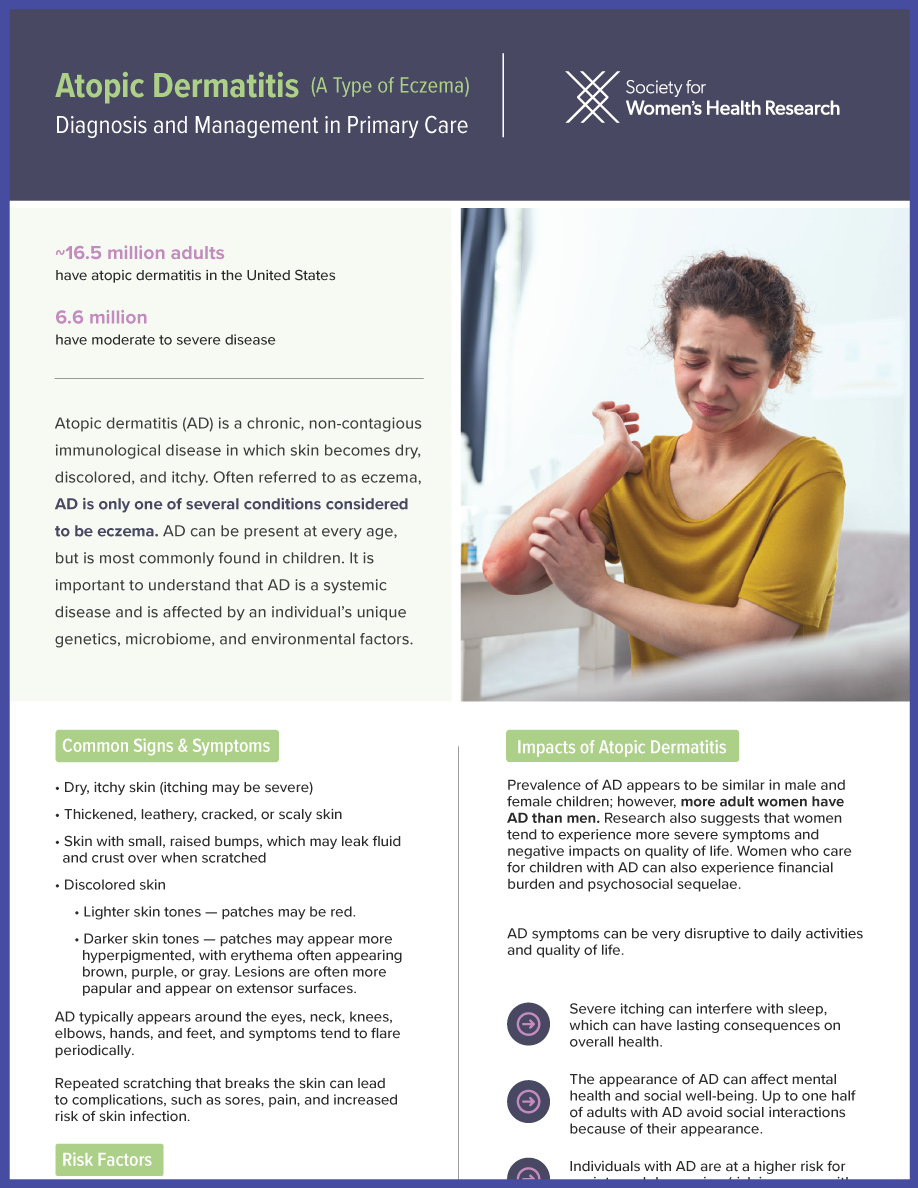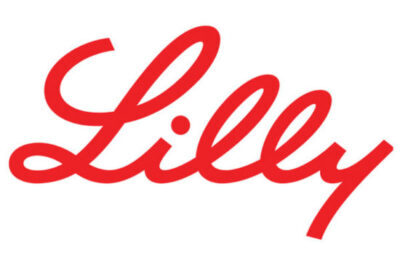Atopic dermatitis (AD) is a chronic, non-contagious immunological disease in which skin becomes dry, discolored, and itchy. Often referred to as eczema, AD is only one of several conditions considered to be eczema. AD is a systemic disease and is affected by an individual’s unique genetics, microbiome, and environmental factors.
Although an estimated 16.5 million adults have atopic dermatitis in the United States, there remain gaps in research and medical treatment for AD. Prevalence of AD is higher in women than men, and women tend to experience more severe symptoms and negative impacts on quality of life.
This fact sheet from SWHR reviews common signs and symptoms of atopic dermatitis, risk factors and impacts of the disease, and treatment options.
Below are a few organizations that provide additional resources and support for women living with AD or caring for children with this disease.
SWHR thanks Eli Lilly and Company for their support of this educational work.
Download Fact Sheet


